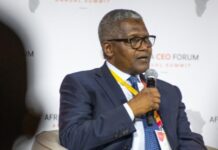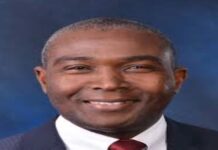The Vice President, Prof. Yemi Osinbajo, has called on stakeholders in the oil and gas industry to come out with recommendations and solutions that would address oil theft and boost production in the country.
Osinbajo gave the task while addressing the “Stakeholders Conference on Oil Theft and Loses in the Nigeria”, on Tuesday in Abuja.
The conference, themed: “Protecting Petroleum Industry Assets for Improved Economy”, was oganised by the Investigative Panel on Oil Theft/Losses in Nigeria under the chairmanship of retired Maj.-Gen. Barry Ndiomu.
“All theft and sabotage of oil and gas assets are a clear and present danger to our economy and national security. Not only do they pose a serious threat to all exploration and our energy economy, they also impact negatively on what is accrued to the federation and the business prospects on investors in the oil and gas sector.
“If not checked, this will fuel crises that will paralyse government and leave our country extremely vulnerable to all of the shocks and other unexpected consequences.
“Large scale theft of crude oil undermine our efforts to optimise the intended vision. Nigerian Extractive Industry Transparency Initiative (NEITI) put the audited figure of oil theft and losses at something in the order of 619.7m barrel of crude oil daily.
“And this is valued at $46 billion dollars or N16.25 trillion; and all of these losses occurred between 2010 and 2020,” he said.
“In addition, Nigeria lost about 4.2bn litres of petroleum products from refineries which were valued at over 1.4bn dollars at the rate of 140,000 barrel per day from 2009 to 2018.
“This is just an average, because, there are peaks where we see losses between 200 to 400 thousand barrels in a day.
“Institutional and personal reputation are at stake. I think that is the cardinal reason we are here. I employ us to exhaust decision on this matter.
“With the profile of discussants, I hope you will discuss appropriately and come up with recommendations that would profer solutions and achieve the over all objective of this conference.
“I want you to think out of the box and be courageously innovative in proferring your recommendations,” Osinbajo charged.
He further stressed that the total value of crude oil losses between 2009 and 2020 was higher than the size of Nigeria’s foreign reserve at any point in time and also 10 times Nigeria’s savings in our crude account.
He commended Ndiomu and thevNational Security Adviser, retired Maj.-Gen. Babagana Mongonu.
“However, our administration is committed to leaving our best actions, notes and ideas for use by the next administration and better of our nation”.
Monguno said the presence of Osinbajo clearly demonstrated the resolve and commitment of the Federal Government to address the perennial challenge of oil theft and other related criminalities in the country.
“The initial concerns of oil theft in the country date back to the early 1980s; but in recent times, the situation has developed to a more pronounced and disturbing level.
“This is because the criminals have now increased the level of sophistication considering the various methods they employ to tap primary pipeline with illegal secondary pipelines to load on barges and sell to international collaborators.
“Also they process locally for illicit domestic sale. These attacks on oil producing facilities have led to several shut downs, and in some instances declaration of force majeure by some international oil companies in the country.
“This had resulted in the loss of revenue and by implication negated the capacity of government to generate the required resources to fulfil its statutory responsibilities to the citizenry,’’ said the NSA.
According to him, addressing crude oil theft requires strong interagency collaboration with the relevant stakeholders, such as security agencies, the NNPCL, International Oil Companies and very crucially, the local communities.
Mongonu explained that a high tech real time Intelligence Maritime Domain Awareness Facility has between August 2018 and January 2023 facilitated the prosecution of over 200 vessels involved in maritime criminality within Nigeria’s Exclusive Economic Zone.
“In addition, 83 oil tankers involved in various crude oil and product theft have been arrested while the theft of over three million barrels of crude oil was prevented and 11 million litres of petrol and diesel were recovered.”
The Minster of State for Petroleum Resources, Mr Timipre Slyva, said the theme of the conference was apt, adding that it will address some of the challenges bedeviling the oil and gas sector for decades.
Slyva explained that the volume of crude oil loss to non-state actors and the manner the situation has disrupted the nation’s economy is of grave concern.
“The oil and gas industry as the major source of foreign exchange for Nigeria’s industry has come under serious attacks, bringing serious losses to government revenues.
“30 years ago, Nigeria could produce over two million barrels of oil per day; however, today, it struggles to drill as little as 60 per cent of that amount.
“The concerted efforts of the government in terms of securing our petroleum industry assets is yielding positive results and this tempo will be sustained to achieve OPEC’s quota,’’ Slyva said.
The News Agency of Nigeria (NAN) reports that Slyva was represented at the event by the Director of Downstream Sector in the ministry, Mr Mohammed Abubakar.
The Chairman of the Special Investigative Panel on Oil Theft and Losses in Nigeria, retired Maj.-Gen. Barry Ndiomu, had earlier said due to the protracted cases of oil theft, the Federal Government awarded pipeline surveyednce contract to some companies.
According to him, the company included Tantita Security Services Limited, adding that the strategy eventually led to the widely publicised discovery of an illegal connection used in the diversion of crude oil along the Trans-Escravas Trunk Line.
“Consequently, the Federal Government immediately swung into action by employing measures to address the situation. This led to the inauguration of the investigative Panel, chaired by humble self.
“There is no gainsaying the enormous impact the menace has had on the nation’s crude oil production with our oil output hitting a 13-year low of 800,000 barrels per day.
“On the side of the law enforcement and security, agencies visits were made to the Chief of Army and Navel Staff, to the DG-DSS, the Attorney General of the Federation and Minister of Justice, the EFCC, among others.
“These engagements availed us information on the challenges their respective organisations faced in securing our nation’s oil assets and combating oil theft.
“These efforts provided us new knowledge and elicited honest discussion amongst Panel Members that led to some obvious conclusions, signifying that theft and loss of crude oil stemmed from the twin issues of complicity and negligence,’’ Ndiomu said.
The chairman of the investigative panel further explained that the emergent picture suggests the existence of a sophisticated network of complicity between elements from the host communities, security agencies and industry players.
He added that they included both government and private institutions alike, as well as international collaborators.
“The conception of this conference is part of the panel’s strategy to obtain additional inputs, information and data on the subject matter. Today’s event therefore aims at consolidating on what has been achieved so far,” Ndiomu said.
Also speaking, the Group Managing Director of NNPCL, Mr Mele Kyari, represented by Mr Bala Wunti from the company, said security of oil resource is important to the economic growth of the country.
Kyari explained the various challenges faced by the company in the production of crude oil and called on all stakeholders to be committed in addressing the various challenges that made Nigeria to lose its oil resources to criminals.
NAN also reports that the event attracted officials from Ministries of Finance, Interior, Petroleum, Environment and Education.
Others were officials from the National Assembly, Service Chiefs, military and paramilitary agencies, NNPCL, PENGASSAN, NIMASA, Oil Companies, Captains of industries, traditional rulers from host communities and many relevant stakeholders.
Crude oil theft, biggest threat to Nigeria’s economy – NSA
The National Security Adviser (NSA), retired Maj.-Gen. Babagana Monguno, says crude oil theft is arguably the biggest threat to Nigeria’s economy currently.
Monguno said this at the at the Stakeholders’ Conference on Oil Theft and Losses in Nigeria, convened by the Special Investigative Panel on Oil Theft/Losses in Nigeria on Tuesday in Abuja.
The theme of the conference is, “Protecting Petroleum Industry Assets for Improved Economy.”
The NSA had, in December 2022, inaugurated an 11-man special investigative panel to probe oil theft in the Niger Delta region of the country.
He said the initial concerns of oil theft in the country dated back to the early 80s, saying the situation had developed to a more pronounced and disturbing level in recent times.
According to him, the criminals have now increased the level of sophistication considering the various methods they employ to tap primary pipelines with illegal secondary pipelines to load on barges and sell to international collaborators, or to process locally for illicit domestic sale.
Monguno said the attacks on oil producing facilities had led to several shut downs, and in some instances declaration of force majeure by some International Oil Companies in the country.
This, he said, had resulted in loss of revenue and by implication negated the capacity of government to generate the required resources to fulfil its statutory responsibilities to the citizenry.
“Currently, crude oil theft is arguably the biggest threat to Nigeria’s economy.
“Its socio-economic impact includes environmental degradation, health hazards and disruption in economic activities of the host communities amongst other concerns.
“Permit me to state that the recent discovery of an illegal pipeline connection at kilometre 4, on the Trans-Escravos Pipeline, Yokri Community in Burutu Local Government Area of Delta State, was the tipping point which prompted the Federal Government to institute a 10-man special Investigative panel.
“This discovery further brought to the fore some seeming gaps in the security arrangement and frameworks for securing the oil and gas infrastructure in the country.
“Unfortunately, it is these identified gaps that are being exploited by criminals and economic saboteurs to undermine our national security,” he said.
NSA said the recent interceptions by security agencies at various loading platforms as well as illegal activities of artisanal refiners suggested that the problem was not insurmountable and was gradually being addressed.
He added that addressing crude oil theft required strong interagency collaboration with the relevant stakeholders such as the security agencies, NNPC, IOCs and the local communities.
According to him, it may also require regional and international collaboration due to the transnational nature of the threat to provide a more comprehensive approach by integrating all the necessary stakeholders.
Monguno said the security agencies, particularly the Nigerian Navy, had embarked on series of intelligence driven maritime security operations to curb the issues of oil theft and illegal oil bunkering in the Niger Delta area.
He added that Falcon Eye System – a high tech real-time intelligence Maritime Domain Awareness facility domiciled with the Nigerian Navy and coordinated by the ONSA had been fully committed to addressing the emerging concern.
According to him, the facility has between August 2018 and January 2023 facilitated the prosecution of over 200 vessels involved in maritime criminality within Nigeria’s Exclusive Economic Zone (EEZ) up to the Republic of Togo.
“In addition, 83 oil tankers involved in various crude oil and product theft have been arrested, while the theft of over three million barrels of crude oil was prevented and 11 million litres of petrol and diesel were recovered.
“Recent commendations from the International Maritime Organisation (IMO), European Union and United Nations Office on Drugs and Crime to Nigeria on its efforts in reducing maritime criminality in the Gulf of Guinea and successful prosecution of pirates in the region are quite instructive.
“As such, it need not be stressed that technology remains a major force multiplier for any integrated solution or framework to address security concerns of this nature,” he said.
The Chairman, Special Investigative Panel on Oil Theft/Losses in Nigeria, retired Maj.-Gen. Barry Ndiomu, said the nation had been witnessing protracted cases of oil theft and steady decline in its revenue accrual from oil sales.
Ndiomu said the award of pipeline surveillance contracts to some private firms recently led to the discovery of an illegal pipeline connection used in the diversion of crude oil along the trans Escravos trunkline.
He said the conference marked the climax to months of field visits by the special investigative panel to locations and facilities on and offshore as well as extensive engagement across government and non government stakeholders.
He said the deliberations were aimed at unpacking and unraveling what had become the country’s most troubling economic debacle.
According to him, there is no gainsaying the enormous impact the menace has had on the nation’s crude oil production with the country’s oil output heating a 13-year low.
Ndiomu said the panel visited several sites and stakeholders, which gave an insight into the issues surrounding the phenomenon.
“Strategic consultations were held with the governors to get their special insights into experiences in dealing with the many issues around oil theft.
“On the part of the law enforcement and security agencies, we interfaced with the chief of Army staff and the Chief of Naval staff as well as the Director General of the state Security Service.
“We also met with the Attorney General of the Federation and Minister of Justice alongside the Economic and Financial Crimes Commission (EFCC).
“These engagements are build us information on the challenges their respective organisations faced in securing our nations oil assets and combating oil theft.
“These and several other government agencies availed the panel memoranda and documents, which have also proved useful to the panel,” he said.
The chairman said the conception of the conference was part of the panel’s strategy to obtain additional inputs, information and data on the subject matter to consolidate on what had been achieved so far.























